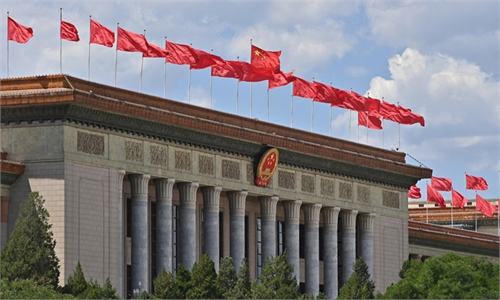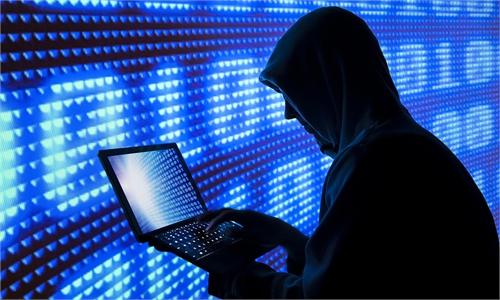Leading consulting company probed in counter-espionage action for safeguarding national security

Photo: VCG
Chinese national security authorities' probe into a consulting company was a normal law enforcement action in line with laws, which aims to promote the healthy development of the industry and safeguard national security and development interests, Chinese Foreign Ministry spokesperson Wang Wenbin said at Tuesday's press briefing, in response to an espionage case involving leading consulting firm Capvision.
Experts noted that the move was conducted based on the law.
The state security bureau in Suzhou, East China's Jiangsu Province, and other authorities carried out a joint enforcement action against Capvision's Suzhou branch, urging it to fulfill its responsibilities and obligations for counter-espionage, Jiangsu local media reported on Monday.
The relevant departments made inquiries with the company personnel in accordance with the law and regulations. The law enforcement operation was jointly carried out in Shanghai, Beijing, Suzhou, Shenzhen and other cities, according to the reports.
Under the current complex international situation that China is facing, espionage-related cases are becoming more "hidden" and "diversified with multiple measures" endangering national security, Li Wei, an expert on national security at the China Institute of Contemporary International Relations, told the Global Times on Tuesday.
The consulting company, as an intermediary, hid its overseas background to lure experts with high payment or other measures to conduct activities endangering national security, such as stealing state secrets and intelligence from key sectors, Li said.
Founded in 2006, Capvision is a global expert network platform with headquarters in both New York and Shanghai, with a network of more than "450,000 experts and 700 employees," according to the company's website.
On Monday night, the company said via its official WeChat account that it would firmly implement national security development and take a leading role to regulate the industry.
"The company has more than 1,000 customers at home and abroad, with its business divided into three parts.
"The expert interview segment accounts for 80 percent of the total business and is primarily conducted through telephone interviews," said a police officer from the Shanghai state security bureau, according to a China Central Television (CCTV) report on Monday.
The company focuses mainly on influential experts in key fields and important industries such as policy research, national defense, finance, technology, energy and resources, and medicine and health.
For a long time, in order to make profits, the company not only encouraged experts in key fields to disclose confidential information during consultations, it also never let experts know the real identities of the clients in the name of protecting their privacy, said the CCTV report.
A senior researcher at a large Chinese state-owned enterprise, surnamed Han, was sentenced to six years in prison for spying and illegally providing state secrets and intelligence, according to the report.
At the invitation of Capvision in 2015, Han became an expert in the company. He refused to provide confidential information at the beginning, but he finally agreed in the face of consulting fees.
Another expert surnamed Lei who was working for a military enterprise was suspected of illegally providing state secrets abroad. Lei became an expert for Capvision in 2020 due to his working experience in a military firm.
When working with foreign-related consulting projects, these consulting companies frequently contact personnel involved with confidential information from government organs and other important sectors. They acquire all kinds of sensitive data illegally in the name of hiring industry consulting experts, posing a major risk to national security, said a police officer, according to Jiangsu local media.
The companies and personnel involved shall be investigated for legal liability according to the law, said the police.
Chinese lawmakers on April 26 voted to adopt a revised Counter-Espionage Law, which will take effect on July 1. The revised law refines the definition of espionage, specifying acts such as conducting cyber-attacks against state organs, confidential-related units, or critical information infrastructure as acts of espionage.
"We need to be more vigilant against the multiple hidden ways that put national security at risk," Li said. Li also called for national security education to be carried out over the long term.



